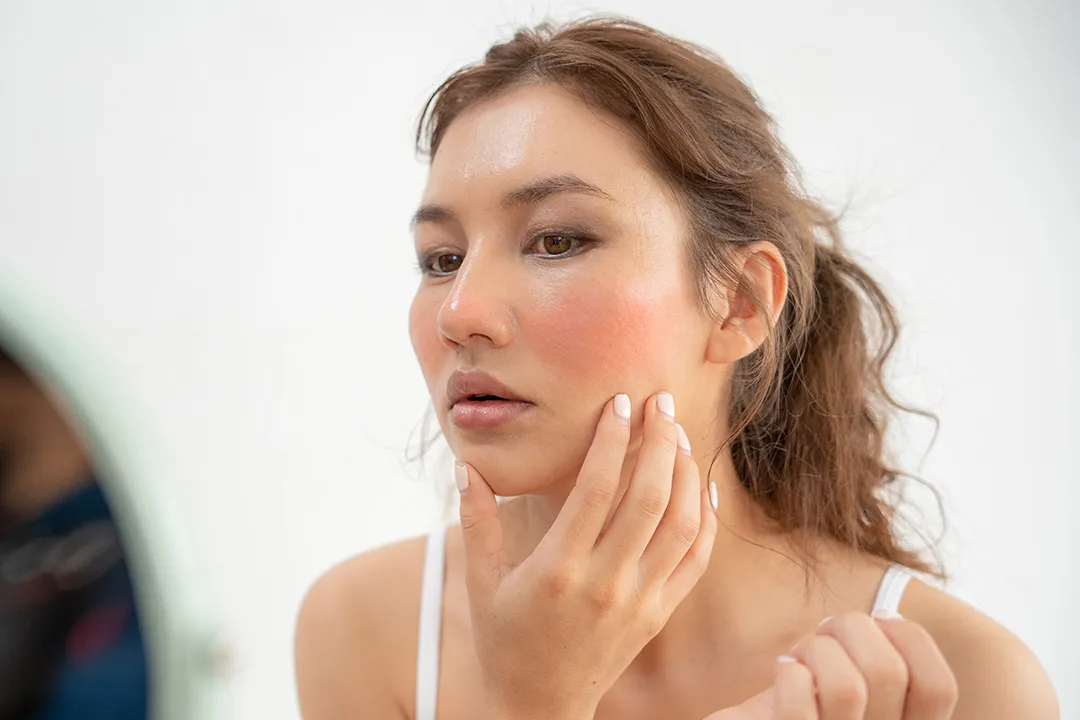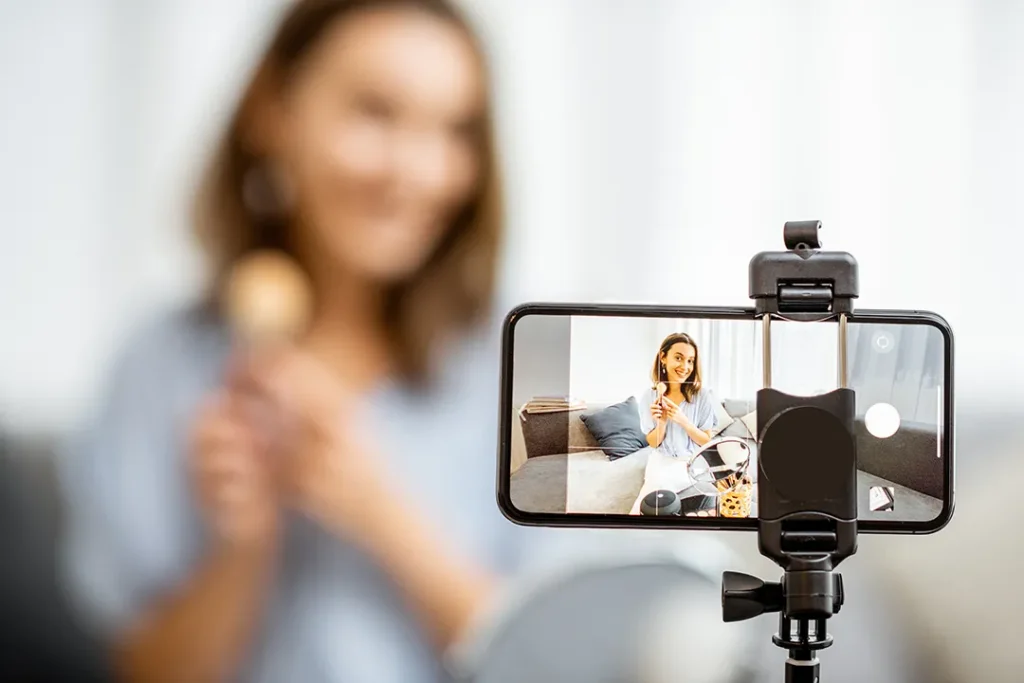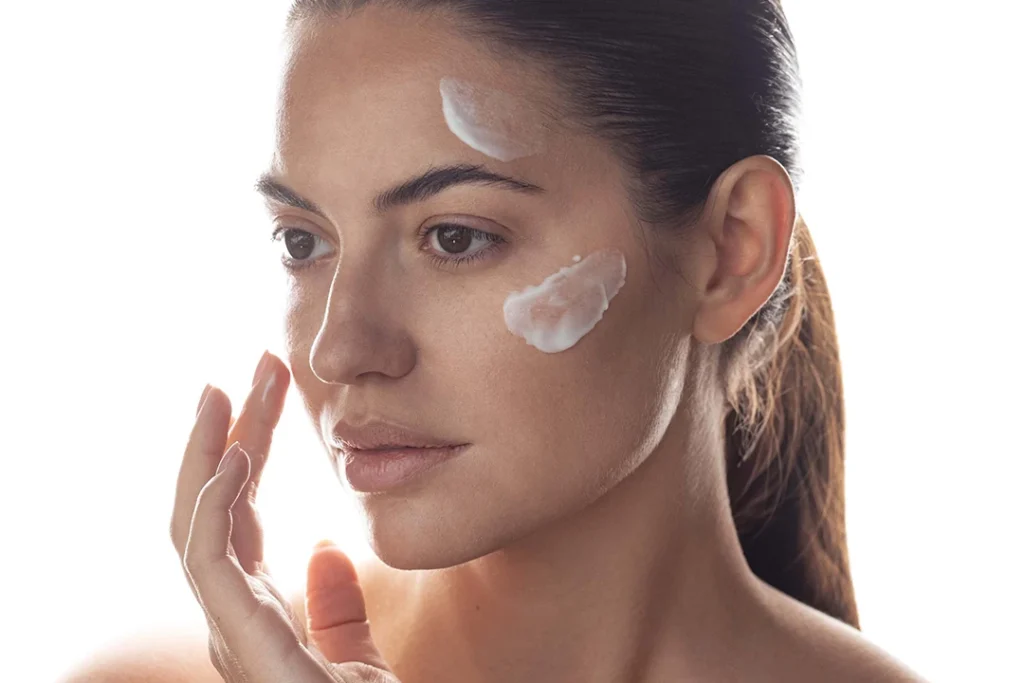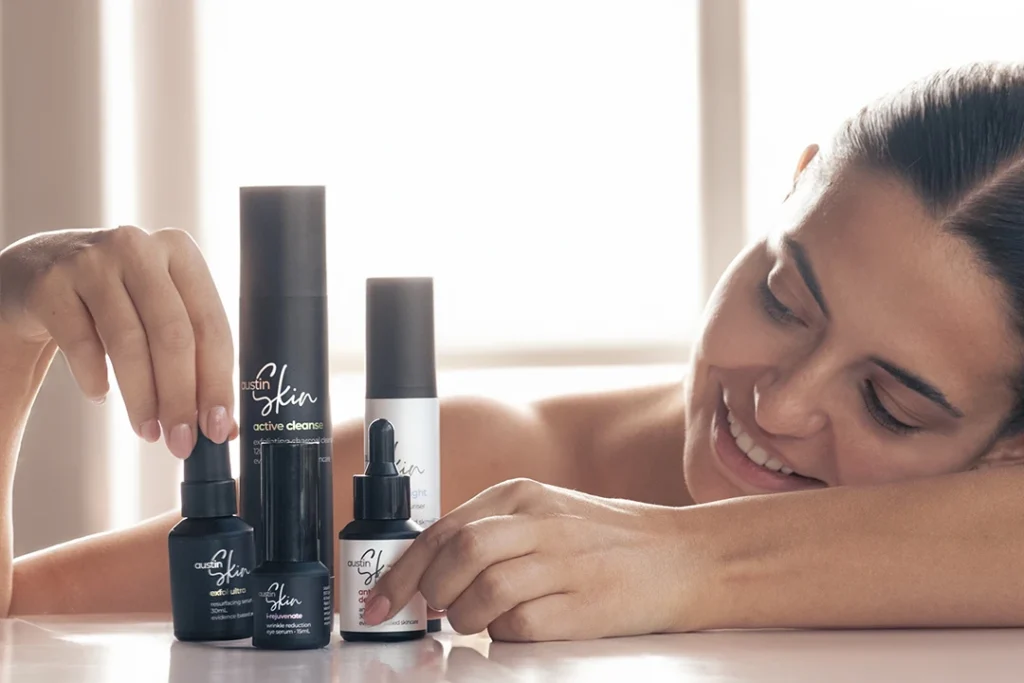This skincare boom has created an interesting trend: younger teens and even pre-teens are now more aware of and invested in their skin’s health. However, this increase in skincare knowledge and product accessibility has a downside. Young people may be drawn to products marketed as must-haves, including anti-ageing items that are more beneficial in one’s 20s and beyond, often without understanding what their skin truly needs.
If you’re a teenager, or a parent of one, understanding which products to use and which to avoid can help promote a healthy skin journey. Let’s delve into why anti-ageing products may not be suitable for teenagers, the importance of a tailored skincare routine, and finally, a few effective skincare products that are perfect for younger skin.
3 Ingredients to Avoid and Why
Anti-ageing products are designed with specific skin concerns in mind – usually those that arise as skin begins to lose collagen and elasticity with age. Most anti-ageing skincare products include ingredients that may not be suitable for youthful skin, and which can potentially harm teenage skin if used excessively or inappropriately. Here are some key ingredients in anti-ageing products that are not necessary for teenage skin:
Retinoids: Often found in anti-ageing products, retinoids stimulate collagen production, which is great for mature skin looking to reduce wrinkles. For teenagers, however, these ingredients may cause excessive dryness, irritation, and even disrupt the natural moisture barrier.
Peptides and Growth Factors: These components help mature skin regenerate and repair but may be too intense for teenagers whose skin is already in a rapid regeneration phase.
High Concentrations of Hyaluronic Acid and Collagen: Anti-ageing products often contain high concentrations of these hydrating ingredients. While beneficial, overuse can make young skin overly oily, clogged, and prone to acne.
Teenage skin needs a different approach. Teens typically face issues such as hormonal acne, oily skin, and sensitivity, which are best managed with products that provide balance and gentle care, not drastic anti-ageing effects.
5 Top Tips for Balancing a Teenager’s Skincare Routine
Teenage skin is unique and constantly changing. Hormonal changes during puberty can lead to oil production spikes, acne, and increased sensitivity. Unlike anti-ageing requirements, a teenage skincare routine should focus on maintaining the skin’s natural health, addressing common issues, and protecting it from environmental stressors such as sun damage. Here are some tips for crafting a balanced teenage skincare routine:
Start Simple: Begin with the basics – a gentle cleanser, moisturiser, and sunscreen. Adding too many products or changing routines frequently can harm the skin’s barrier, causing more issues.
Hydration Over Oils: Teenagers should choose lightweight, oil-free moisturisers that provide hydration without clogging pores.
Focus on Sun Protection: Sun exposure can lead to early signs of ageing, pigmentation, and acne scars, so quality sunscreen is a crucial part of any skincare routine.
Avoid Excessive Exfoliation: Overusing physical or chemical exfoliants can strip the skin, leading to irritation. Once or twice a week is sufficient for teenagers.
Patch-Test New Products: Introducing new products gradually and testing them on a small area first can help prevent adverse reactions.
What’s Not for the Kids
In addition to having an overwhelming array of skincare products available, younger consumers also have access to non-invasive skin treatments. Medical clinics and beauty centres offer treatments such as facials, microdermabrasion, and laser treatments that once were exclusively for adults. While these treatments can be beneficial, they need to be approached cautiously when requested by younger users.
Chemical Peels: Light peels can be helpful in managing acne or oily skin, but they should be carefully administered and ideally, recommended by a doctor.
LED Therapy: This treatment can help reduce inflammation and bacteria in acne-prone skin, making it a great option for teens.
Microdermabrasion: This gentle exfoliating treatment can reduce blackheads and improve skin texture but should be used sparingly on young skin.
Non-invasive treatments can be helpful when used properly, but they are not always necessary. Often, establishing a good at-home skincare routine can be more beneficial for teenagers than frequent salon visits.
Three Skincare Products Ideal for Pre-Teens and Teens
Navigating the wide selection of products available today can be tricky, but here’s a list of three products that are effective for younger skin:
Gentle Foaming Cleanser – A gentle, sulphate-free foaming cleanser helps remove dirt and excess oil without stripping the skin. Look for ingredients such as green tea or aloe vera, which can soothe and calm the skin.
Oil-Free Moisturiser – For young skin, an oil-free moisturiser keeps hydration levels balanced without contributing to oiliness or acne. Choose products with ingredients such as hyaluronic acid, glycerine, or ceramides.
Sunscreen – This is the number one anti-ageing product for people of any age. Sunscreen helps prevent hyperpigmentation and acne scarring. A broad-spectrum SPF of at least 30 is ideal for everyday use.
Age Matters When It Comes to Skin Care
The world of skin care can be overwhelming, especially for teenagers who are just beginning their skincare journey. The key is simplicity and consistency – using the right products, sticking to a balanced routine, and being mindful not to overdo it. Anti-ageing products may sound appealing, but they’re unnecessary at this age and can even lead to issues such as irritation and clogged pores. Instead, a good cleanser, moisturiser, and sunscreen are the foundations of healthy skin for teens.
With the right routine, teenagers can take care of their skin, avoid common issues, and set a foundation for lifelong healthy habits. Enjoying skincare should be about feeling good in your skin today and tomorrow, without the pressure of anti-ageing products. Let Austin Clinic show you how.




